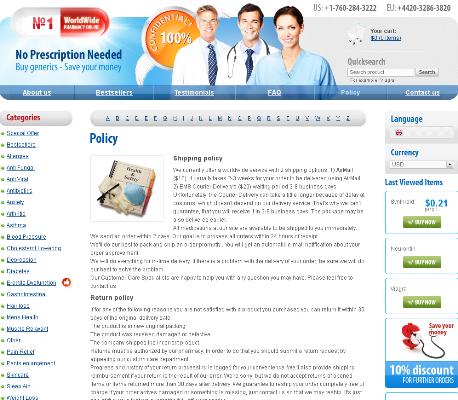Understanding How Priligy Works in the Body
When someone takes Priligy, its journey in the body is swift but effective. Classified as a selective serotonin reuptake inhibitor (SSRI), Priligy increases serotonin levels in the nervous system. This neurotransmitter is crucial in controlling mood and, more importantly for users, delaying ejaculation. Upon ingestion, the medication is absorbed and reaches its peak concentration within just one to two hours.
The effects are intended to be short-lived, making Priligy an on-demand treatment for premature ejaculation. Unlike antidepressants, which require daily dosing, Priligy is used only before sexual activity. This targeted action minimizes long-term exposure, allowing users flexibility and control.
| Feature | Description |
|---|---|
| Drug Class | Selective Serotonin Reuptake Inhibitor (SSRI) |
| Peak Concentration Time | 1-2 hours |
| Intended Use | On-demand before sexual activity |
Why Mixing Alcohol and Medications Raises Concerns

Imagine enjoying a glass of wine while also taking medication—on the surface, it might not seem risky. However, alcohol can influence how drugs like priligy work in your body. The liver, which breaks down both alcohol and medications, can become overwhelmed, leading to unpredictable effects. Sometimes, this can increase the potency or prolong the action of the medication.
When these substances mix, there’s a chance for heightened side effects or new, unexpected reactions. For instance, alcohol can amplify drowsiness, dizziness, or even lower blood pressure when combined with certain medications. This is particularly relevant for individuals taking priligy, as its side effects may intensify.
The unpredictability is concerning. Since everyone’s body reacts differently, a seemingly harmless combination could pose serious health risks without warning.
Priligy’s Interaction with Alcohol: What Science Says
Current scientific research reveals that combining priligy with alcohol can heighten certain side effects, particularly dizziness, drowsiness, and difficulty concentrating. Both substances act on the central nervous system, and this overlap can intensify their sedative properties, sometimes leading to unpredictable results.
Clinical studies note that alcohol may also enhance priligy’s impact on blood pressure, occasionally causing drops that result in lightheadedness or even fainting. While a single drink may not always pose significant risks, the effects can be much more pronounced with higher alcohol intake.
Ultimately, experts agree that mixing priligy with alcohol is best avoided to maintain both effectiveness of the medication and personal safety.
Potential Side Effects When Combining Priligy and Alcohol

Picture this: You’re heading out for a night with friends, feeling optimistic about using Priligy to manage premature ejaculation. The drinks start flowing, and suddenly, what was meant to be an easy evening becomes complicated. Consuming alcohol while on Priligy can amplify its side effects, including dizziness, fainting, and headaches—making you feel lightheaded or even downright ill. For some, the combination may lead to trouble concentrating or blurred vision, turning even simple conversations into a challenge.
Moreover, your liver processes both Priligy and alcohol, and mixing them increases the strain on this vital organ. This could intensify dehydration, cause heart palpitations, or, in rare cases, raise blood pressure. The risks increase with higher doses, so what starts as a single drink may quickly escalate. Staying informed and cautious is crucial to avoid unexpected consequences.
Precautions to Consider before Taking Both Together
Before mixing priligy and alcohol, being proactive is crucial. Consider your current health conditions—especially issues with the liver, heart, or mental well-being—as these can amplify risks when both substances are present. Even in healthy individuals, alcohol can intensify side effects such as dizziness, fainting, and impaired judgment after taking priligy. It’s wise to read medication leaflets thoroughly and have open conversations with your doctor or pharmacist.
Timing and dosage matter, too. Never exceed the recommended amount of priligy, and avoid binge drinking on days you plan to use it. Small amounts of alcohol might seem harmless, but even moderate consumption can cause unexpected interactions. Always have a trusted companion nearby if you’re uncertain about your reaction.
| Factor | Precaution |
|---|---|
| Medication Schedule | Take priligy exactly as prescribed |
| Alcohol Intake | Limit or avoid alcohol on treatment days |
| Health Check | Consult a healthcare provider regularly |
Expert Advice on Safe Use and Lifestyle Choices
Many healthcare professionals emphasize the importance of honest communication about lifestyle habits when using Priligy. If you’re considering the medication, it’s vital to let your doctor know about your alcohol consumption, even if it’s occasional. Combining strategies for managing both medication and social situations can help you make safe, informed choices, reducing the risk of avoidable side effects.
Doctors may recommend planning your dosing schedule to avoid overlap with social drinking, especially if you’re attending events with potential alcohol consumption. Small steps, like opting for non-alcoholic drinks or designating alcohol-free days, can bring big benefits to your overall health and the effectiveness of your treatment.
Regular follow-ups with your healthcare provider offer a chance to discuss any issues or changes in your routine. This collaborative approach supports both your safety and long-term well-being.

